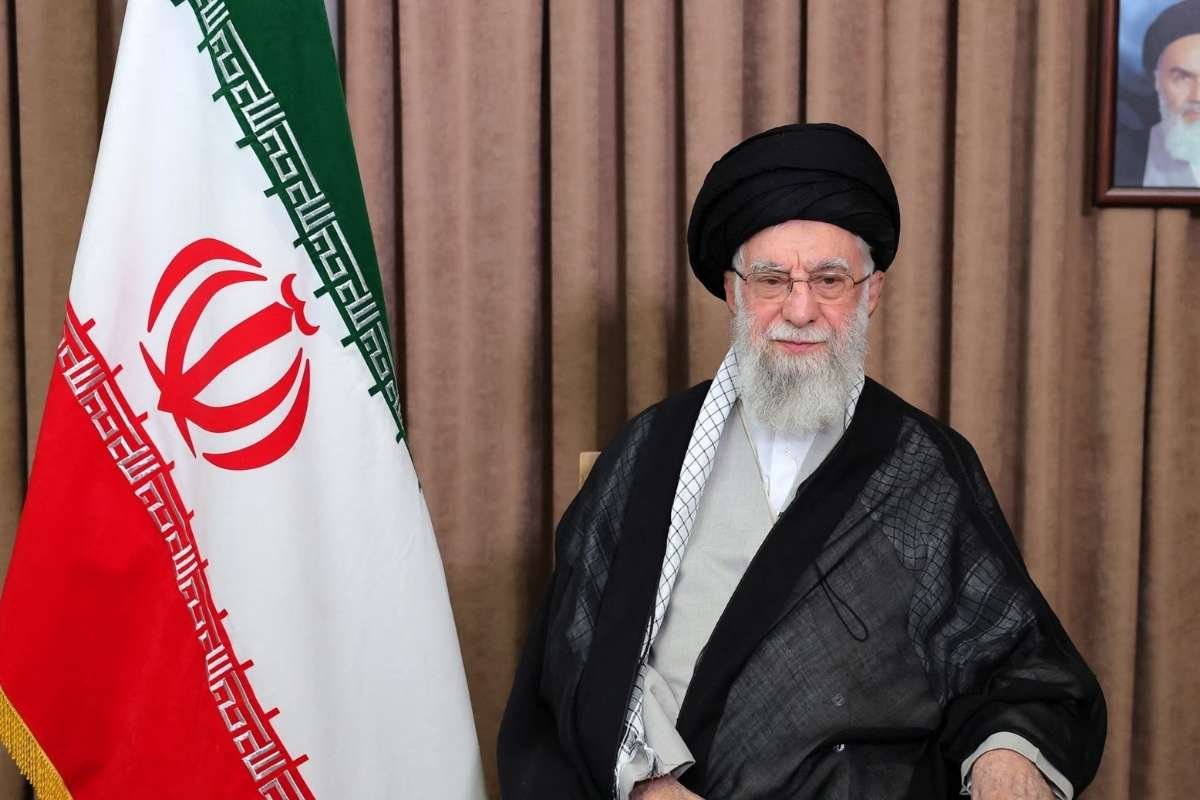Iran’s Supreme Leader, Ayatollah Ali Khamenei, has issued a stern warning against any potential U.S. military intervention, saying it would inflict “irreparable damage” on American forces. The message, aired on state television Wednesday, was a direct response to President Donald Trump’s recent call for “unconditional surrender” from Iran following a series of heavy Israeli airstrikes.
Khamenei condemned what he described as “threatening and absurd statements” from Trump, asserting that the Iranian nation would not yield under pressure. “Wise individuals who know Iran, its people, and its history never speak to this nation with the language of threats,” he said in a pre-recorded video message. This was Khamenei’s second public appearance since the conflict escalated last week.
Trump, who had initially distanced himself from Israel’s surprise offensive, has since signaled stronger support for the campaign, dispatching additional U.S. military assets to the region. Meanwhile, Iran’s Foreign Ministry also warned that American involvement could lead to an “all-out war.” Despite growing threats, Iran remains defiant, vowing to continue its uranium enrichment for what it insists are peaceful purposes.
Escalating Israeli airstrikes Devastate Key Iranian Facilities
The Israeli military has intensified its air campaign, striking multiple targets across Iran, including centrifuge manufacturing plants and missile production sites in and around Tehran. According to the U.N. nuclear watchdog, two major nuclear facilities were hit during overnight operations. Additional strikes in western Iran targeted missile storage areas and an operational launcher.
These bombardments follow Iran’s retaliatory missile and drone attacks, which have killed at least 24 Israeli airstrikes and injured hundreds. While the frequency of Iranian missile launches has declined, Israel has systematically destroyed much of the launch infrastructure, contributing to the reduction. However, Tehran has not offered any official explanation for the scaling back of its counterattacks.
Civilian casualties continue to rise in Iran, with the Washington-based Human Rights Activists group reporting at least 585 deaths, including 239 civilians and 126 security personnel. The Iranian government has withheld regular updates, only last reporting 224 fatalities and over 1,200 injuries. In the capital, Tehran, daily life is increasingly disrupted as explosions echo across the city, businesses shut down, and residents flee.
Nuclear Tensions Rise as Diplomatic Talks Falter
As Israel defends its military campaign as a measure to prevent Iran from acquiring nuclear weapons, Tehran remains steadfast in its nuclear ambitions. Iran’s ambassador to Geneva, Ali Bahreini, reiterated the country’s right to enrich uranium for peaceful uses, dismissing Israeli airstrikes claims of significant damage to its nuclear infrastructure.
Although U.S. intelligence agencies maintain that Iran is not actively pursuing a nuclear bomb, concerns persist as Iran enriches uranium up to 60%—a level just below weapons-grade. Diplomatic talks, ongoing for over two months, appear to have yielded little progress, with Trump imposing a 60-day window that has since expired.
In Israel, two repatriation flights from Cyprus marked the partial reopening of Ben Gurion International Airport, which had been closed due to missile threats. As the conflict deepens, regional stability remains precarious, and the specter of direct U.S. involvement looms large.
Visit The Enterprise World For The Most Recent Information.


















